Dubuque can lay claim to many fine, upstanding citizens, but as far as I know, the city has produced only one person who was charged with treason for broadcasting Nazi war propaganda on his Berlin-based radio programs during World War II.
Frederick Wilhelm Kaltenbach was born in Dubuque on March 29, 1895, to German immigrant John Kaltenbach and his wife, the former Anna Scheppele. When Fred or “Fritz” as he was sometimes called was a year old, the family moved to Waterloo where Fred and his five siblings attended public schools. In 1914, Fred graduated from Waterloo’s East High School where he had been “a studious, introspective youth” who excelled at debate.
As a graduation gift, the Kaltenbachs sent Fred and his younger brother Gustav to Germany where they toured the country on bicycles. In August 1914 as the Great War began, the youths were arrested on suspicions of espionage and were detained until December when they were released. In spite of his incarceration, Fred was enthralled with Germany and wrote, ‘“I was swept by a powerful emotion and something inside me said I am going home.”’
When Fred returned to Iowa, he enrolled at Grinnell College. After three years, he left Grinnell and enlisted in the U.S. Army. Fred was commissioned a second lieutenant in the Coastal Artillery and served from June 1918 to April 1919. In the fall of 1919, Fred returned to his studies at Iowa State Teachers College (now the University of Northern Iowa) in Cedar Falls and earned a bachelor’s degree in 1920.
Following his college graduation, Fred worked for a Waterloo trust company until 1930 when he began his teaching career in Manchester, IA. In 1931, he moved to Dubuque where he taught Business Law, Economics, History, and coached debate at Senior High School. While working at Senior High School, Kaltenbach lived downtown at the YMCA, studied French in the evening, and earned a master’s degree in history from the University of Chicago through summer courses.
Kaltenbach was noted for his goose-step walk as he marched to Senior High School each morning and back to his home in the YMCA in the afternoon. Rex Brammer, Senior High School class of 1933, recalled “watching him walk on Seminary St. along the Clarke College grounds – erect, somewhat stiff, with a precise, measured stride. He demanded a second look.”
During the 1934-1935 school year, Kaltenbach gathered a group of boys into a “hiking club” he called “The Militant Order of Spartan Knights.” The Knights were modeled after the Hitler Youth, and soon, Kaltenbach had the boys wearing brown shirts and practicing marksmanship with .22-caliber rifles. Often, hikes and picnics at Swiss Valley and boxing matches at the YMCA were punctuated with Kaltenbach’s anti-American remarks.
Understandably, parents and other citizens became concerned with Kaltenbach’s behavior. The Dubuque American Legion invited Kaltenbach to attend a meeting to talk about the Knights and explain his personal philosophies. As Kaltenbach “aired his views,” the meeting deteriorated into a near riot. According to one Legionnaire, “as [Kaltenbach] stepped from the Legion platform, after lecturing on his doctrine of leadership, a Legionnaire floored him with a blow to the jaw. Other Legionnaires also got in a few licks in registering what they termed an active protest before order was restored.”
On February 11, 1935, the Dubuque School Board voted to disband the Militant Order of Spartan Knights. A few months later on May 13, 1935, the School Board decided not to renew Kaltenbach’s teaching contract for the next school year.
Following his termination, Kaltenbach returned to Germany where he worked as a free-lance writer and translator while he pursued a PH.D at Berlin University. In February 1939, he married Dorothea Peters, a woman with Nazi party contacts. A few weeks after his marriage, Kaltenbach was hired as a broadcaster for Nazi short-wave radio networks and went on the air as one of Joseph Goebbels’ propagandists.
By Thanksgiving 1939, Kaltenbach’s remarks during his Monday evening broadcasts had identified him as an American from Iowa. Kaltenbach, nicknamed “Lord Hee Haw” by the British, often addressed his radio remarks to Iowa friends including “Dear Henry,” a former schoolmate and attorney. Kaltenbach’s various radio programs included dialogues between “Jim and Johnny,” “Fritz and Fred,” and the iconic “Letters to Iowa” which consisted of anti-Roosevelt, anti-British, and isolationist propaganda. Kaltenbach’s programs soon became an important part of the Nazi’s worldwide propaganda campaign. Meanwhile, back in the United States, a Washington, D.C. federal grand jury accused Kaltenbach of treason and indicted him in absentia on July 26, 1943.
When WWII ended, Russian troops occupying Berlin in mid 1945 arrested Kaltenbach at his apartment in spite of the large sign Kaltenbach had hung on his door declaring he was an American citizen. In apparent ill health, Kaltenbach was sent to a detention camp in Soviet territory. The U.S. offered to trade two SS guards for Kaltenbach, but the Russians declined the offer. Sometime later, the Russians informed U.S. Headquarters that Kaltenbach had died at the age of 51 in October 1945
while incarcerated in a Soviet detention camp. Although official camp records were never made available despite repeated requests, several former inmates of the camp confirmed that Kaltenbach had died of natural causes.
Since authorities were reluctant to accept Soviet reports of Kaltenbach’s death, for two years, they kept a close watch on POWs returning from the Soviet Zone. Kaltenbach never appeared. On April 13, 1948, the U.S. District Court accepted Kaltenbach’s death and dismissed the charges of treason against him.
No headstone marks Kaltenbach’s final resting place. All that remains of his life are a few academic papers, photographs in old Dubuque Senior High School yearbooks, short notations in the minutes of Dubuque School Board meetings, and some newspaper articles that outline some of the outrageous behavior of “Dubuque’s Nazi Propagandist.”
This article is part of the Shades of Dubuque series, sponsored by Trappist Caskets, hand-made and blessed by the monks at New Melleray Abbey.


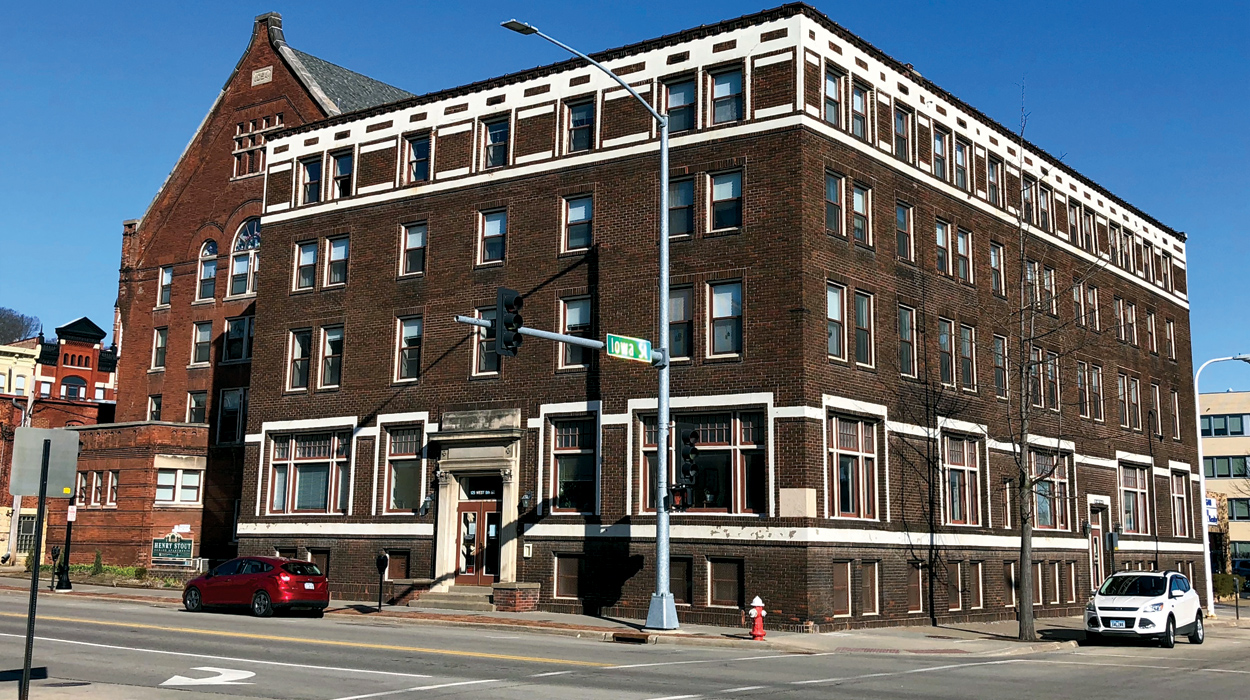
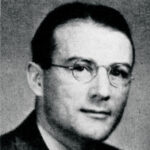
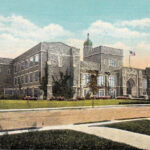
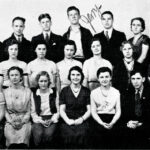
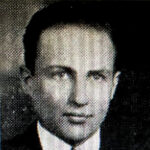


Comment here